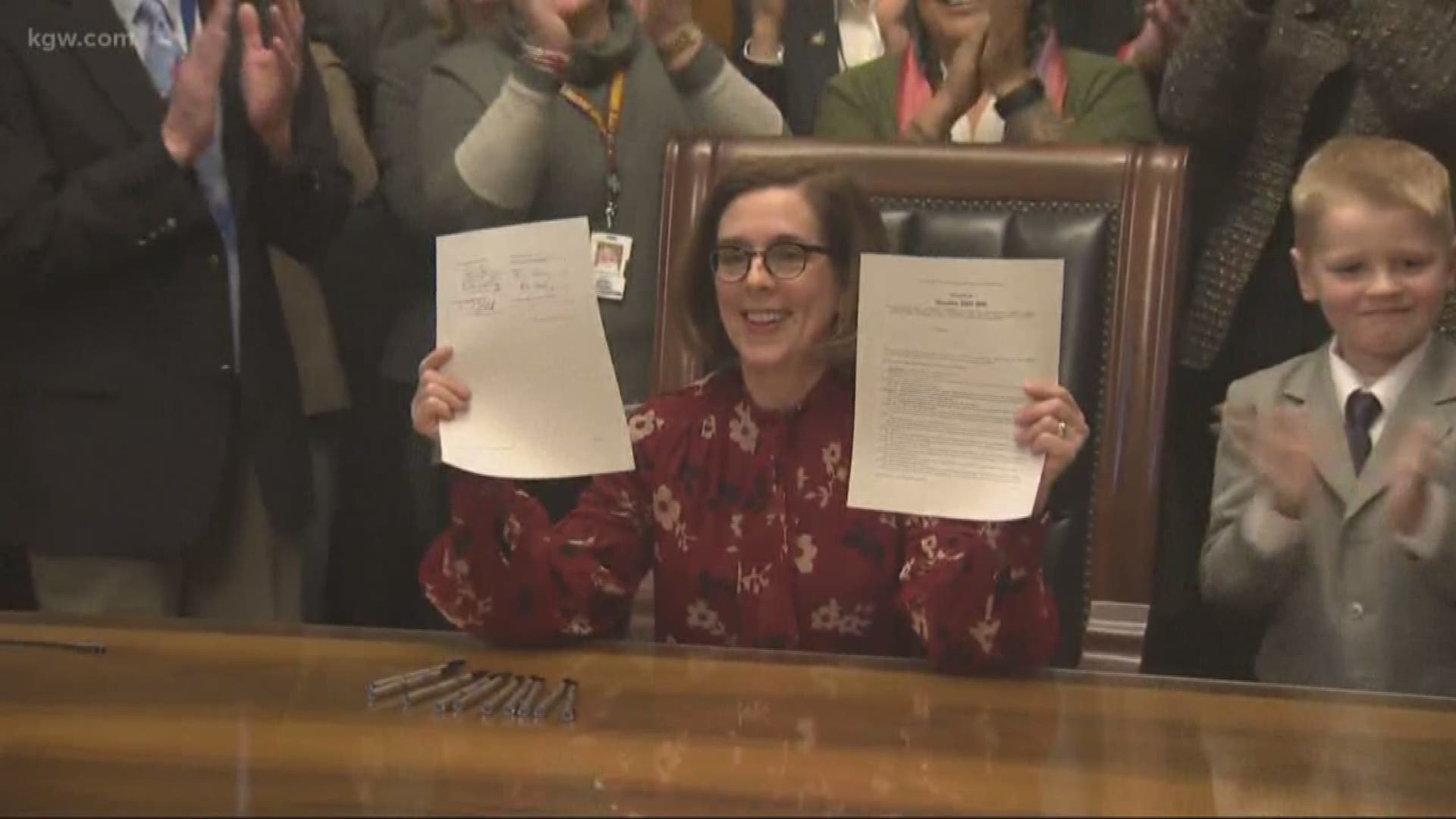Editor's note: The video above is from when the rent control bill was signed by Gov. Kate Brown in Feb. 2019.
PORTLAND, Ore. -- Oregon’s tenant and landlord laws have changed in the last year. If you’re a renter or a landlord it is important to know your rights and duties in the State of Oregon and the Oregon State Bar wants to help.
On Wednesday, July 10, the Oregon State Bar is holding a free seminar to talk about some of the changes after this year’s legislative session and SB 608. You can attend in person or via webcast:
Troy Pickard, the managing attorney at Portland Defender, said there are a few things that landlords and tenants should pay attention to with the law changes:
- "no cause" termination notices are no longer allowed in many situations;
- in place of "no cause" terminations, landlords now have the ability to use a new type of termination - the "landlord cause" termination;
- there is now a hard percentage limit on how much rent can be raised in any 12-month period - currently, it is 10.3% across the whole state; and
- the new laws have new exceptions for everything, and new hoops to jump through, so you can't assume that the new laws actually help you, or hurt you, without analyzing each individual landlord-tenant situation by itself.
"It is super-important for landlords and tenants to pay attention to local legislation, for example, the City of Portland's special relocation assistance ordinance, because those rules can be different from statewide rule," said Pickard via email. "As a tenant, you can't count on your landlord to follow the law - you've got to educate yourself. And as a landlord, you can't just assume that you're in the clear by following statewide laws - the local rules can bite you if you're not paying attention."
Some of the major changes since the bill include:
- A landlord cannot raise rent during the first year of tenancy.
- After the first year, the rent may be raised with a 90-day notice.
- The amount of the increase is limited to 7% plus CPI (a government measure of inflation). In 2019, the rent may only be increased by 7% plus 3.3% for CPI equaling a total of 10.3%.
- That 7% plus CPI does not pertain to buildings that have been open for fewer than 15 years.
Laws for landlords have changed, too. According to SB 608 if a tenant has done nothing wrong a landlord can only terminate a tenancy if:
- The landlord intends to demolish a unit or turn it into something that is for non-residential use.
- If the landlord intends to do renovations to the unit in such a way that it would be unsafe or unlawful to live in during the remodeling.
- If the landlord intends to move an immediate family member into the unit and there is no comparable unit in the building.
- If the landlord intends to sell the unit to a buyer who plans to live there as their primary residence.
The tenant must be notified 90 days in advance and at the time of notice, the landlord must pay the tenant one month of rent. However, if a landlord owns no more than four dwellings, they are exempt from paying the tenant one month's rent.
There are also some exceptions to the four cases for eviction and for more information on that you can visit the Oregon State Bar’s website where there are many resources for landlords and tenants.
Related: Do squatters have rights in Oregon?

